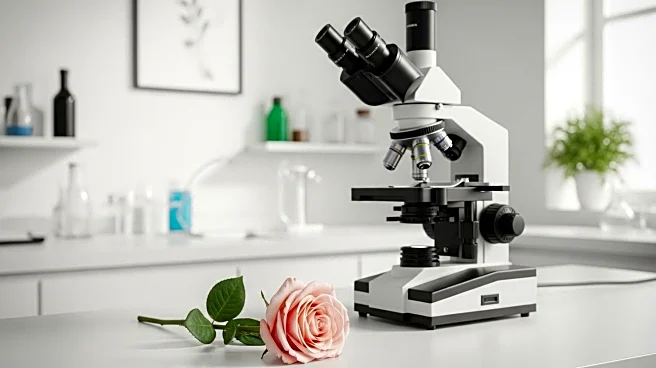What's Happening?
Members of the European Parliament have urged the EU to protect and enhance the ban on animal testing for cosmetics amid ongoing revisions to major regulations. The Cosmetics Product Regulation and REACH are under review, and politicians are calling for the EU to promote cruelty-free scientific innovation. They emphasize the need for an ambitious roadmap to phase out animal testing for chemical safety assessments, positioning Europe as a leader in humane innovation. The letter, signed by nine MEPs and 14 NGOs, calls for the ban to take precedence over other EU chemicals laws.
Why It's Important?
The call to strengthen the ban on animal testing for cosmetics reflects growing public and political pressure to prioritize ethical and humane scientific practices. This move could significantly impact the cosmetics industry, encouraging the development of alternative testing methods and potentially setting a precedent for other regions. Strengthening the ban aligns with broader EU objectives to phase out animal testing, promoting innovation and human-relevant science. This could lead to increased investment in non-animal testing methods, benefiting both human health and environmental protection.
What's Next?
The European Commission is expected to finalize its roadmap to phase out animal testing by March 2026. This roadmap could lead to legislative changes that further restrict animal testing across various sectors. Industry stakeholders, including cosmetics companies and scientific research organizations, may need to adapt to new regulations and invest in alternative testing methods. The ongoing consultation process may also involve public and industry input, shaping the future of cosmetics regulation in the EU.
Beyond the Headlines
The push for a stronger ban on animal testing highlights ethical considerations in scientific research and consumer products. It reflects a broader cultural shift towards prioritizing animal welfare and sustainable practices. This development could influence global standards, encouraging other regions to adopt similar measures and fostering international collaboration on humane scientific innovation.









